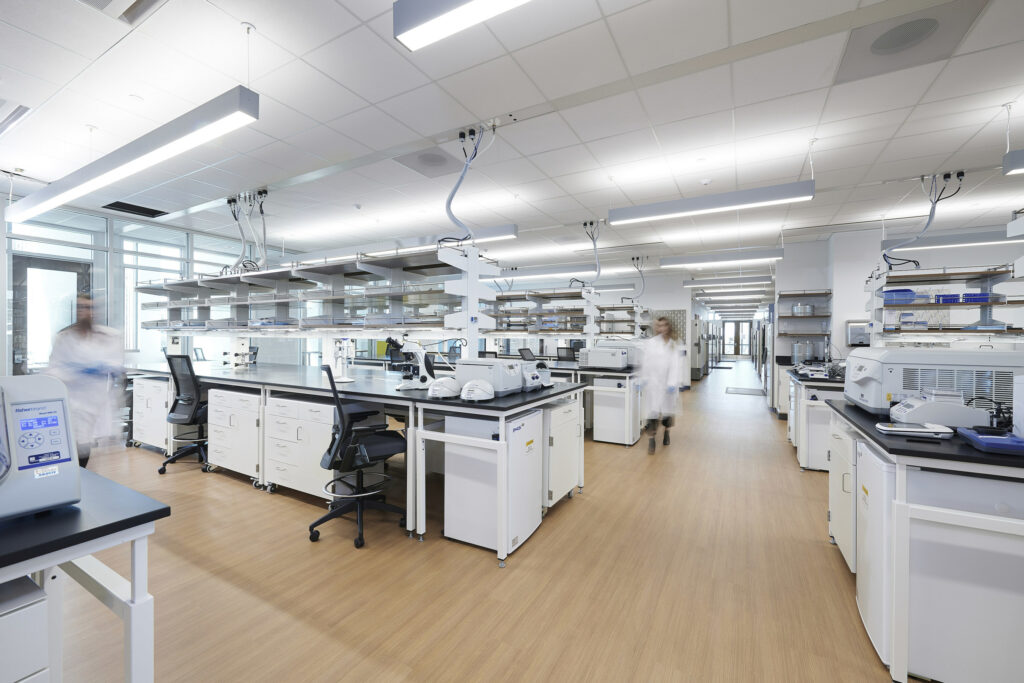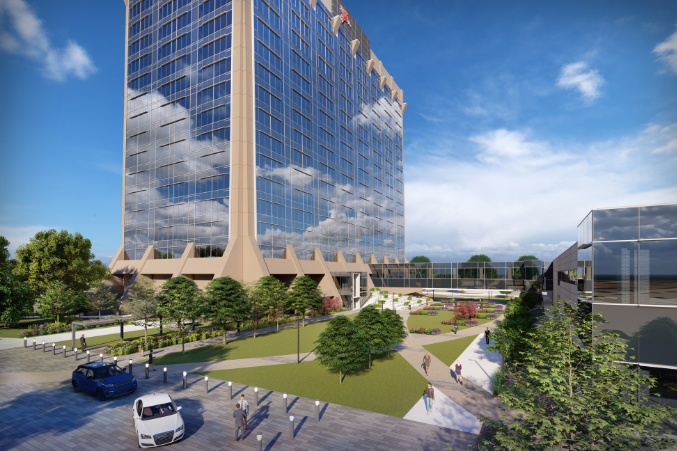I have been in the commercial real estate industry specializing in healthcare delivery for nearly 22 years, and one of the most exciting parts of my experience has been watching markets grow and evolve. As the COVID-19 pandemic affected nearly every aspect of the commercial real estate industry to some degree, I witnessed the rapid growth of the life science market, with the emergence of multiple Texas regions as potential hubs.

Dallas, in particular, ranks among major cities as one of the top emerging markets for life sciences. This could be an incredible opportunity for the Dallas area – the more we can promote the city and surrounding areas as a life sciences cluster on a national level, the higher our chances of attracting national providers and companies to set up offices or headquarters here.
When looking at life sciences as a whole in Dallas, we have to consider three categories: momentum – the size of the life sciences employment base in the Dallas area, wage positioning, and the industry’s momentum; talent – the educational attainment, requisite skills, and diversity of Dallas’ workforce; and potential – the forecasted growth of the market’s performance.
Momentum
Texas has benefitted from growing migration trends over the past several years, with an influx of people from California, Florida, Louisiana, Illinois, Oklahoma, New Mexico, Georgia, and Arizona, with the Dallas-Fort Worth area as one of the biggest gainers of out-of-state moves. It’s likely no coincidence that the Dallas-Fort Worth area ranks as a top metropolitan area for employment acceleration and wage positioning from both an employee and company perspective.
By attracting an influx of new residents and retaining them through better jobs and wages, Dallas’ growing network is significant for the life sciences market, improving its ability to attract and retain a robust talent base.
Talent
Among the biggest metropolitan areas in the nation with the highest concentrations of STEM degrees, Dallas-Fort Worth ranks sixth with over 400,000 STEM degrees, a key factor in determining a life science talent pool. This is in no small part due to the high number of great teaching institutions in the DFW area, including the University of North Texas, the University of Texas at Dallas, the University of Texas at Arlington, to name a few. Moreover, the University of Texas Southwestern Hospital, one of the 50 highest funded National Institutes of Health institutions in the U.S., attracts and cultivates notable life sciences research talent. UT Southwestern has spun out research into companies that have achieved more than $3 billion in fundraising and valuation in the past five years.
A strong, reliable talent base is one of the most important factors of a successful life science market, particularly for attracting national companies. In terms of hiring potential in an age of unprecedented expansion for this specific market, the sheer number of STEM degrees in the DFW area is an attractive pull for life science companies of all sizes.
Potential
Dallas ranks eighth among metropolitan areas with the potential to reach life science market maturity, based on a combination of recent GDP growth and projections for the Millennial population, income, and housing stock growth.
For life sciences in our area to thrive, it’s important to provide a foundation for an appealing long-term lifestyle for our young professionals, as well as industry veterans and world-class doctorates. The factors mentioned above indicate a huge advantage for the DFW area regarding talent retention.
Looking Towards the Future

The strongest proof point for Dallas’ life science market potential is the investment that national companies are making in the area. Recently, BioLabs, a national, membership-based network of shared lab and office facilities located in key biotech innovation clusters, chose Dallas as the company’s ninth location. Dallas also serves as its first incubator location not located on either coast, as opposed to any other central metropolitan location, like Chicago or St. Louis. To be sure, as companies form and launch from this location, the demand for space will accelerate rapidly.
I look forward to what the future holds for life sciences in Dallas and the surrounding areas. We’re receiving national, institutional-grade attention in a highly specialized and rapidly growing sector of real estate. If Dallas reaches its full potential as a life science market, we will see meaningful growth and change in our area’s involvement in the national healthcare landscape.
You can read more about expanding life science markets across the U.S. in JLL’s recent Life Sciences Emerging Markets Index.
Ethan Garner is senior vice president and region lead at JLL Dallas.





